Plainridge
Plainridge Park’s new slots and video gaming parlor took in $6,154,626.38 during its first week of operation, or more than $703 for each of the 1,250 machines per day. Even considering opening week excitement and whatever pent-up local demand there might have been, that’s an impressive haul.
“More than $6 million — that’s an incredible number … Plainridge is showing it can certainly compete with the existing casinos,” New England casino market expert Clyde Barrow tells the Boston Globe.
The nine percent of those revenues designated for the Race Horse Development Fund totaled $553,916.37; that’s $138,479 for harness racing, which takes place at Plainridge. I was going to insert a sentence or two here noting how much Plainridge handled on live racing during the same period, and maybe try to draw a conclusion from the slots-RHDF-handle numbers, but tracking down harness handle figures turns out to make Thoroughbred racing look like a transparent, open industry. (Harness friends, any tips?)
So, let’s use 2014 numbers, taken from the racing office’s annual report (PDF): Last year, the track handled a total of $1,108,715 on-track on 82 race days, or $13,521 per card, and handled another $6,576,620 on its simulcast feed, for an average of $93,724 per card. Pull the Pocket does a bit of estimation/comparison:
Let’s say Plainridge does $100,000 in handle per card. At a low signal fee, let’s set revenue at 5% of that handle, which would mean the track and purses would drive $5,000 per card in revenue.
If they race three cards a week, that’s $15,000 in revenue.
$15,000 from racing, $567,000 from slots.
His conclusion: There’s no point to doing the work of growing handle when there’s so little payoff compared to the casino money. Plainridge is booked for 105 cards this year. Assuming they average about the same per card as last year, they’ll handle almost $10 million, while paying out approximately $4 million in purses (estimate based on averaged recent daily purse levels; in 2014, Plainridge paid $2.6 million in purses). There’s not much incentive to push casino patrons into betting on the local racing product either: The track’s portion of daily live handle runs roughly $1400 per card on-track, or about the gross on two slot machines.
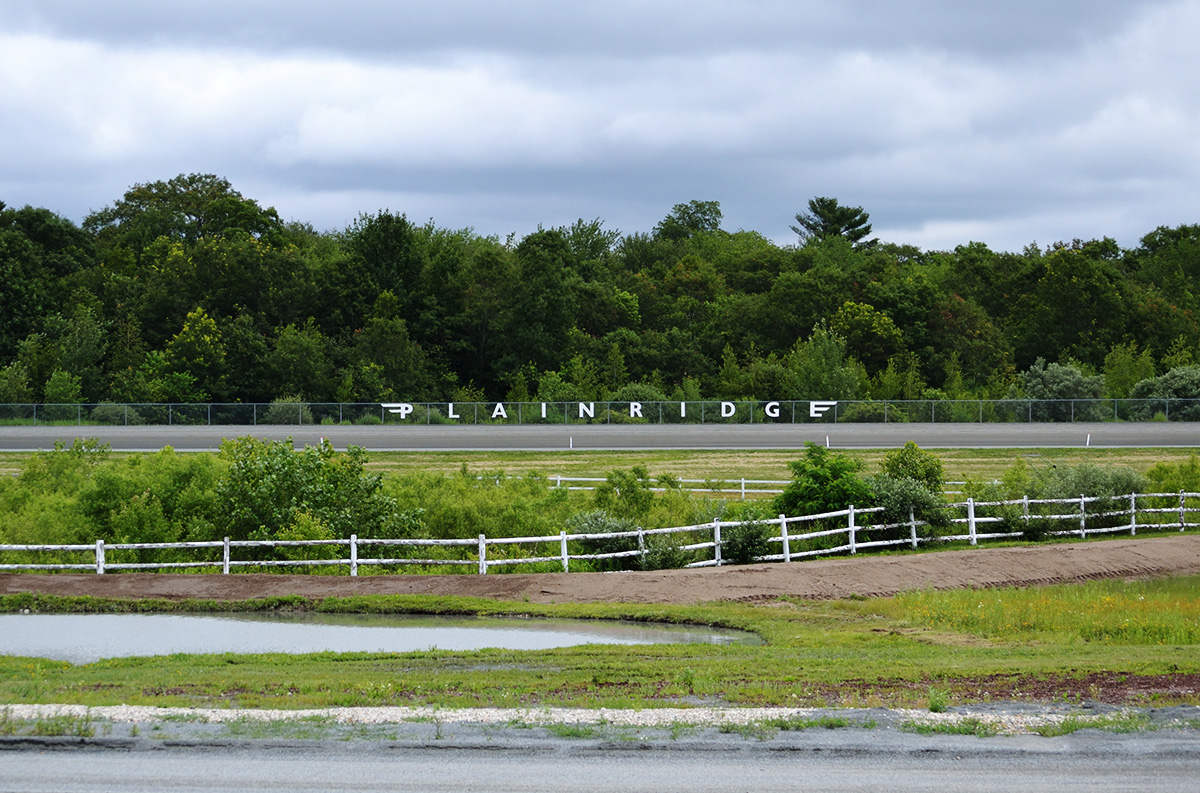
It’s the only horse racing going in Massachusetts right now, so I went to Plainridge Park on Monday to catch Thursday’s rescheduled card. First post was 11:00 AM — too early to enjoy a snack before at Doug Flutie’s Sports Bar, although not too early for the crowd that was already settling into the new, cacophonous casino floor with its 1,250 slot and video gaming machines. When I emerged onto the track apron — after following a winding hallway that lost more glitz the closer it got to the beige and Formica simulcasting room — it was almost a relief to count only 28 other people out there with me.
That number went up, although not by much. By noon — that was race four — fewer than 100 people were along the rail or watching the flat screens inside. What I took for a larger group in the simulcasting room turned out to be eager casino patrons signing up for players’ rewards cards — Plainridge was processing their new loyalists in the one place they had space and the noise level didn’t make it impossible to capture that all-important marketing data.
I don’t know much about Standardbreds or harness racing, except that they’re sturdy animals who often run weekly and that horses breaking from the one hole have an outsized chance at winning because of likely ground saving. I also know that at Plainridge they’re now running for higher purses funded by casino licensing fees and a percent of gaming revenues via the 25% split harness racing gets from the state’s Race Horse Development Fund, which makes total handle a little less of a concern for horsemen and the track, and that — today, anyway — they were running races every 12 minutes. It was almost as though they were running the card as a formality.
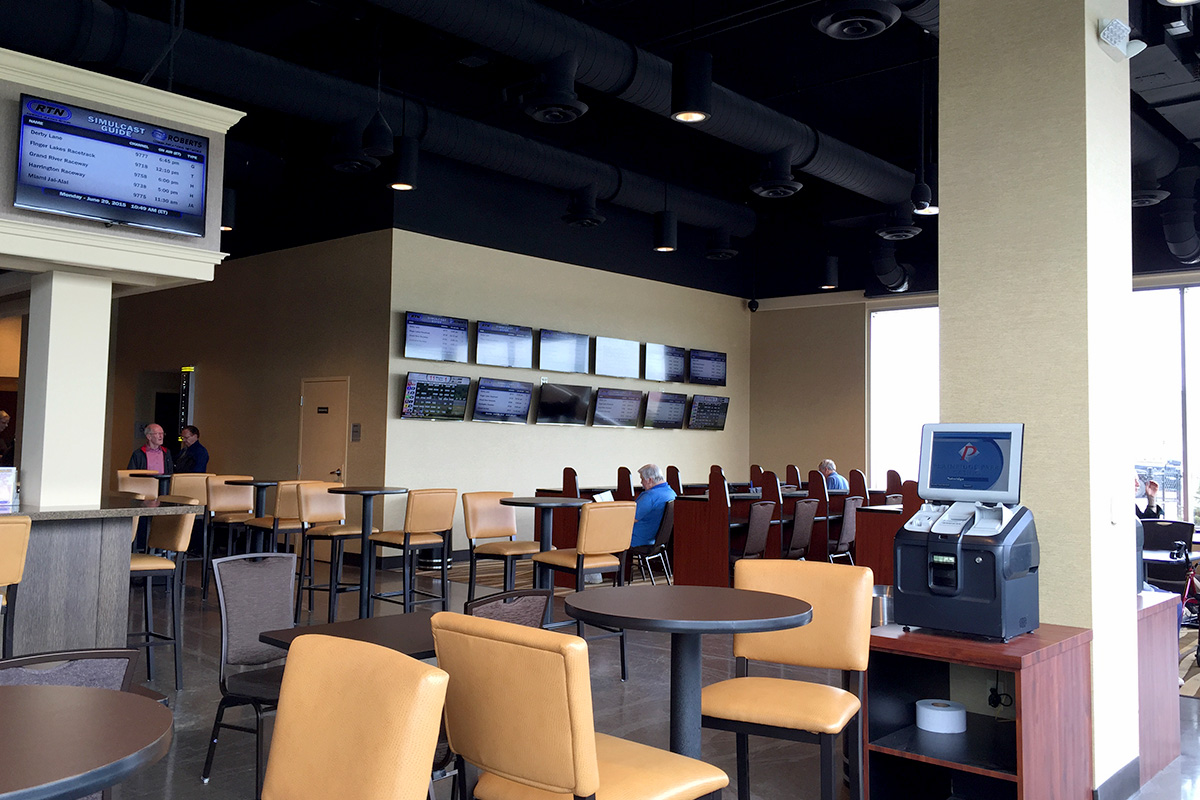
The Plainridge Park simulcasting room.
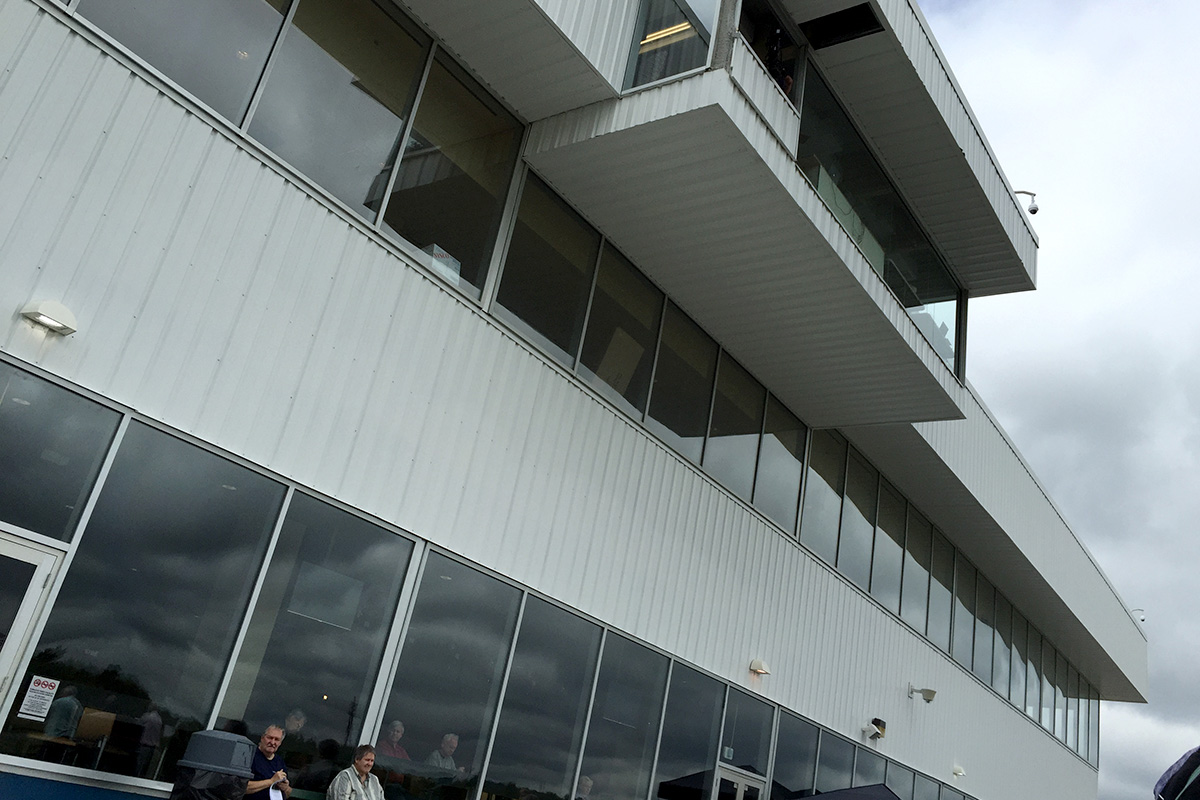
Grandstand exterior. Tents and picnic tables were set up along the wall.
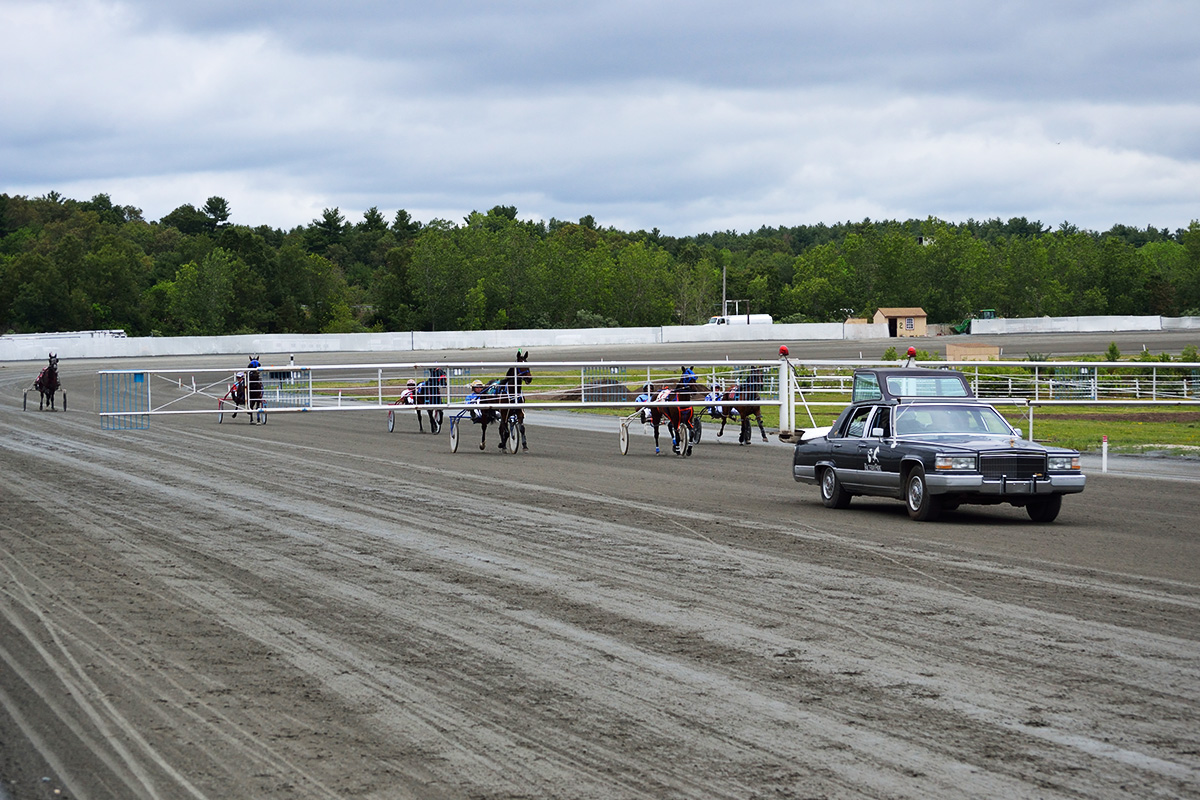
Lining up for the start of a race. A classic car with “Raceway Park” stenciled on the doors handled gate duty.
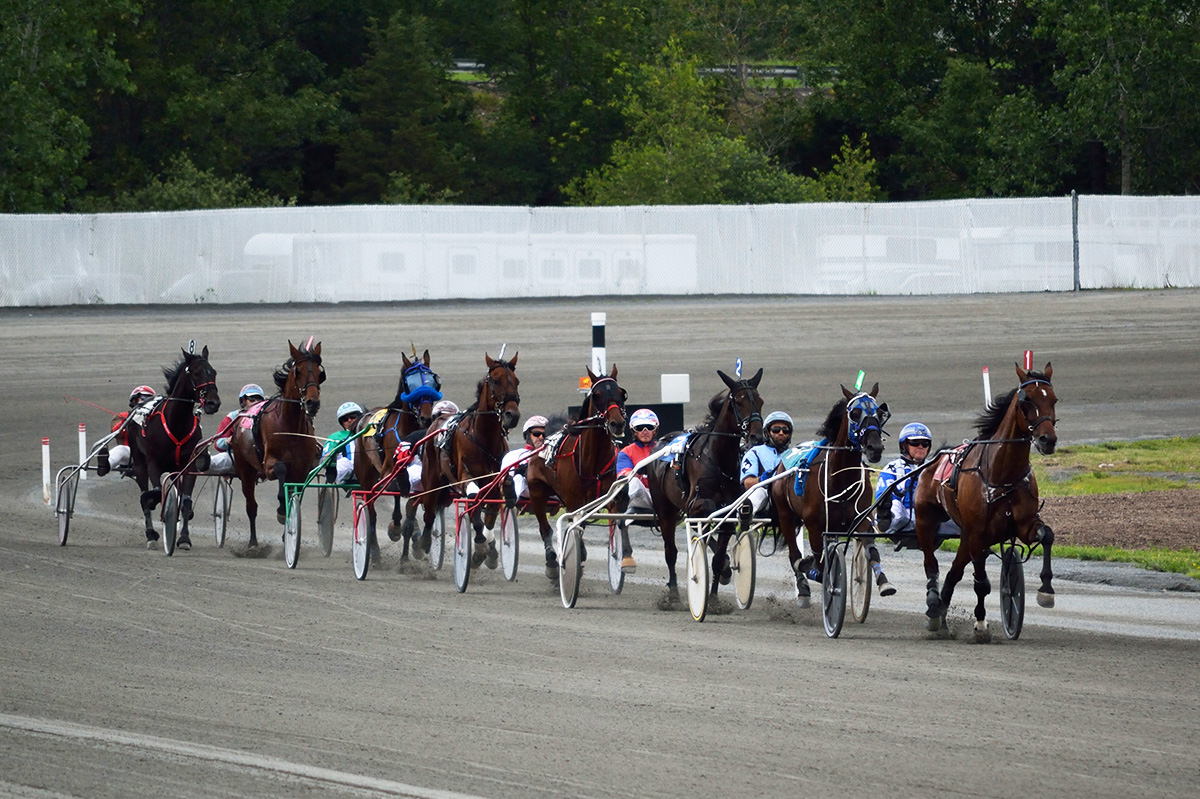
Coming down the stretch for the first time.
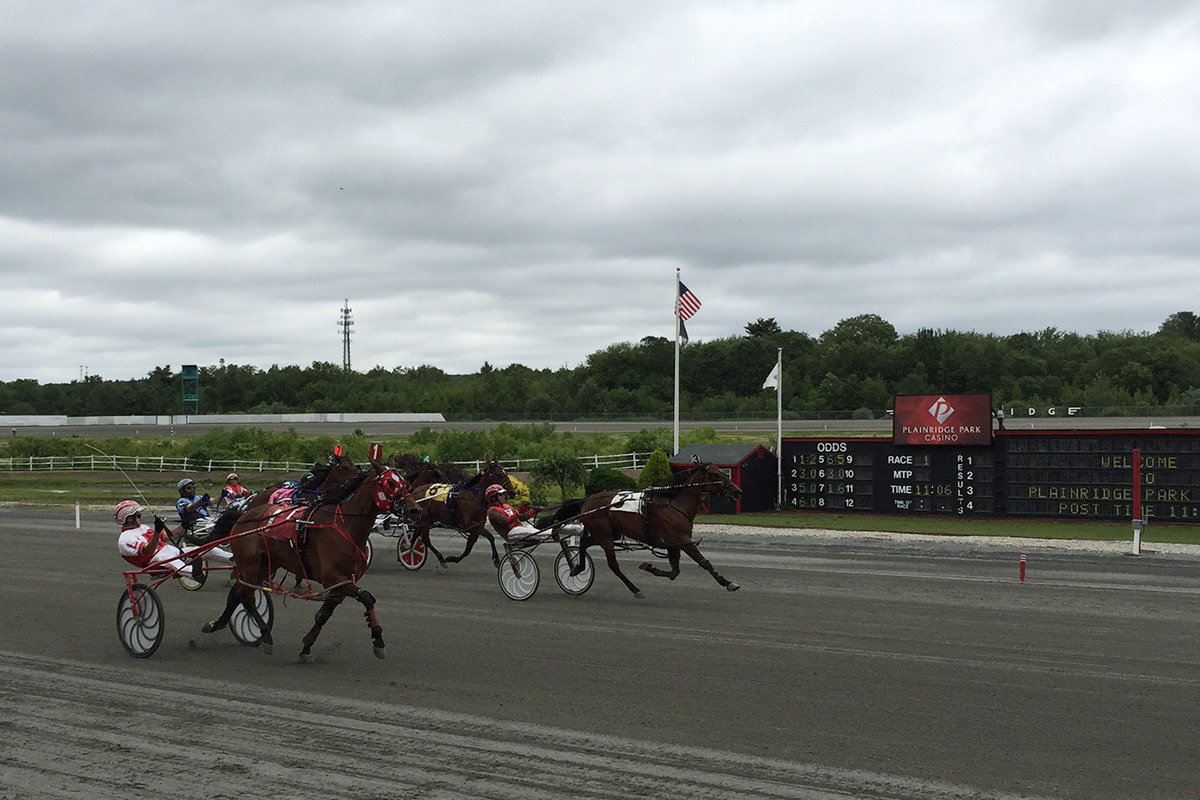
Debs Girloffortune (#1, outside) wins the first race.
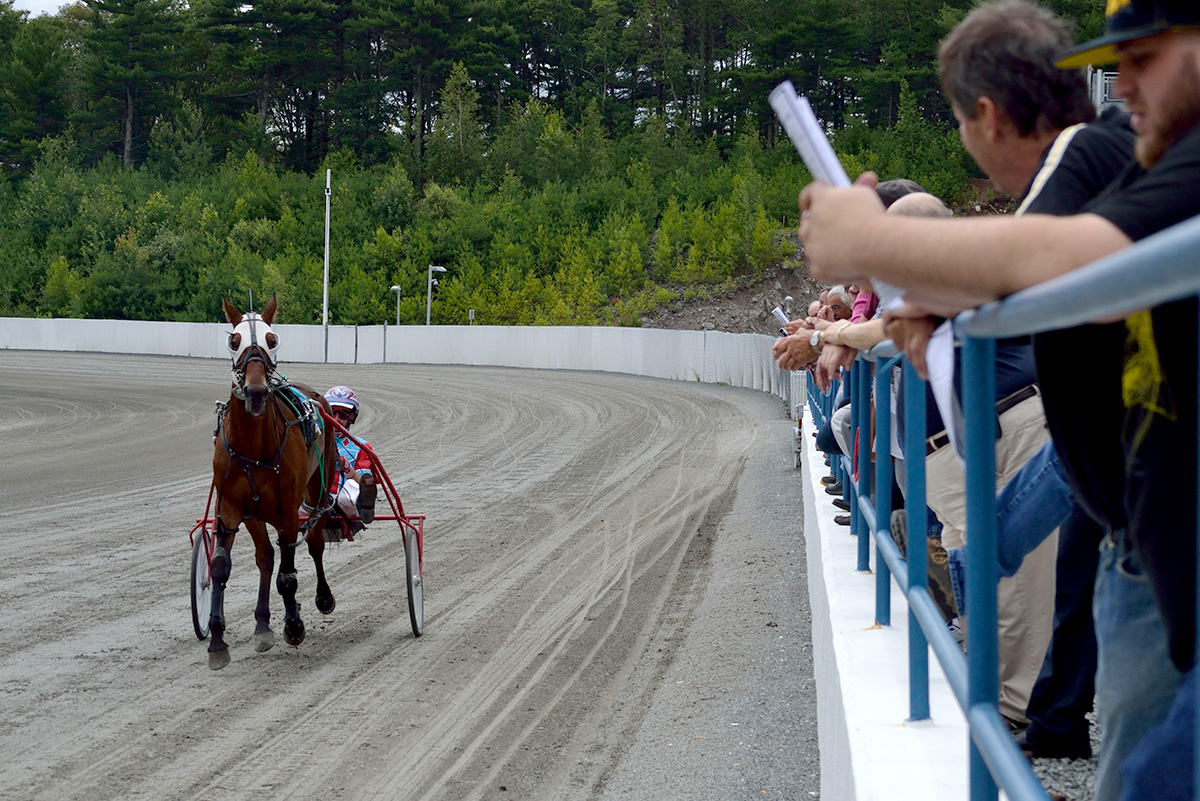
A horse warms up in front of the crowd along the rail.
Suffolk Downs’ application for three days of live racing this year — July 11, August 8, and September 5 — has been knocked back another month. In the Massachusetts Gaming Commission meeting on Thursday morning, general counsel Catherine Blue reported to the commissioners that her office was still reviewing public comments on the proposal and had sent several questions to the track’s executives seeking clarification on various points. Blue said that she expects to return with an update on the application at the second MGC meeting in July, which means the first planned date “won’t be possible.”
Conditions for 12 races on July 11, previously available on Equibase, have been removed, and the July 11 steeplechase scheduled at Suffolk Downs has been re-carded at Parx. An August 8 jumps race at the East Boston track is still on the National Steeplechase Association’s calendar.
Hundreds were lined up to play the slots at Plainridge as soon as the doors opened on Wednesday, “and within three hours … the casino had hit its fire department-imposed capacity of 3,750 people.” Not everyone loved the crowd:
Al Valenti of Framingham said he waited about an hour to get in, and was dismayed by the congestion inside.
“I like to be able to spread out,†he said.
Mr. Valenti should come back on Monday for racing. That’s when Thursday’s card will be run, with first post at the unlikely hour of 11:00 AM. “Plainridge postponed Thursday’s harness card because of anticipated casino traffic,” tweeted Tom LaMarra, adding later, in conversation, “I don’t think they get how bad this looks.” So it does, but here’s the thing — nobody’s watching. The money pouring into the ringing, dinging, blinking machines is too distracting.
Copyright © 2000-2023 by Jessica Chapel. All rights reserved.